ALERT!
This site is not optimized for Internet Explorer 8 (or older).
Please upgrade to a newer version of Internet Explorer or use an alternate browser such as Chrome or Firefox.
Cardiothoracic Surgery Training in Sub-Saharan Africa: My Experience at the National Cardiothoracic Center, Korle-Blu Teaching Hospital
I. Background
Specialist surgery training in West Africa produces a wide range of surgical specialists across various fields, including cardiothoracic surgery. The training occurs in tertiary healthcare facilities (teaching hospitals) that have been accredited by either a national postgraduate medical college or by the regional West African College of Surgeons. Most surgery trainees choose one of the colleges to pursue their training, but a few train in both.
In Nigeria, the options include the National Postgraduate Medical College of Nigeria (NPMCN) and the West African College of Surgeons. The curriculum of both colleges, including surgical specialty rotations and duration of training, are very similar and are in the process of being harmonized. The duration of training for cardiothoracic surgery trainees is a minimum of seven years, including an exit dissertation. (1) The first three years include rotations in general surgery, trauma (accident and emergency), urology, orthopedics, anesthesia, rural posting, pediatric surgery, plastic surgery, neurosurgery and cardiothoracic surgery. (1) At the end of the rotations, trainees must sit for a Part I Fellowship examination, membership examination, or both, depending on their college of interest.
The next phase of training for cardiothoracic trainees is a minimum of four years and includes rotations in general thoracic surgery, cardiac surgery, vascular surgery, cardiology (adult and pediatric), and cardiopulmonary imaging. (1) At the end of the training period, trainees must have completed a dissertation before being eligible for the Part II Fellowship and Fellowship examination. The West African subregion has a robust thoracic surgery program, but is still struggling with cardiac surgery programs, primarily due to the low volume of cardiac operations performed at most cardiothoracic centers. In Nigeria, for example, the Nigeria Open Heart Surgery Registry (NOHSR) reports only 1,662 open heart surgeries performed in approximately 27 different centers from 2004 to date. (2) Various factors contribute to this including the availability of expertise, availability of equipment, patient trust, and the affordability of open-heart surgery. However, these challenges are slowly being overcome, with operations increasing from five in 2004 to 284 cases in 2023. (2) Prior to June 2024, all Nigerian trainees must complete a minimum one-year cardiac surgery rotation outside Nigeria. Most trainees spend this period in an accredited institution in Ghana, South Africa, India, Western Europe or North America.
This article is an account of Dr. Moyijo Maishanu’s four- year clinical rotation as a cardiothoracic surgery trainee from Sokoto, Northwestern Nigeria, at the National Cardiothoracic Center, Korle-Bu Teaching Hospital, Accra, Ghana. This aim is to offer insight into the Part II Fellowship training for most Nigerian trainee cardiothoracic surgeons.
II. The Training Facility
Korle Bu Teaching Hospital, the premier tertiary healthcare facility in Ghana, was established on October 9, 1923. It gained teaching hospital status in 1962 when the School of Medicine and Dentistry, formerly known as the University of Ghana Medical School, was established to train doctors. Currently, the Korle- Bu Teaching Hospital is the third-largest referral center in Africa, with 2,000 beds, 21 clinical and diagnostic departments, and three Centers of Excellence (3).
The National Cardiothoracic Center (NCTC) is a dedicated center with its own wards (30 beds), two operating theaters, a six-bed intensive care unit, six-bed high dependency unit, a dedicated laboratory, cardiac catheterization, radiology, echocardiography services, and a renal dialysis unit. The operating theaters are equipped with in-light high definition (HD) operating room cameras for capturing video and still images for transmission and display on screen for education. A core team of seven cardiothoracic surgeons is assisted by cardiologists, anesthetists, nephrologists, cardiovascular perfusionists, dedicated cardiovascular nurses, technologists, and other staff to manage the center (4). The NCTC serves as a surgical hub for patients from the entire West Africa subregion, receiving regular referrals from Nigeria, Gambia, Sierra Leone, Liberia, and Togo. The center has experienced sustained growth through the years, as evidenced by the increasing number of outpatient and surgical patients (5).
Trainees are exposed to a wide range of thoracic, vascular, and cardiac surgery patients, as well as cardiology patients. The spectrum of cardiovascular surgery includes congenital heart disease, rheumatic heart disease, coronary artery disease, chronic constrictive pericarditis, and aneurysms of the aorta and its abdominal branches. Thoracic pathologies commonly seen are mainly esophageal diseases, lung tumors, suppurative lung diseases, chest trauma and diaphragmatic pathologies (5). The center also regularly performs permanent pacemaker implantation, bronchoscopy, esophagoscopy, video-assisted thoracoscopic surgeries (VATS), embolectomies, and arteriovenous fistulae for hemodialysis.
III. Structure of the Training and Clinical Rotation
The trainee cardiothoracic surgeon at the NCTC has a unique advantage because of the wide range of cases and procedures to which they will be exposed. The training program is structured in a specific way.
Ward Rounds and Morning Meetings
The whole team, led by the consultants at the center, assembles for a quick morning ward round to review all admitted patients, including both preoperative and postoperative patients, and make any necessary changes to their management. During this time, the consultants and trainees interact and discuss patient care and academics.
Following this, a clinical meeting is held where the trainee on intensive care unit (ICU) call and the trainee on ward duty for the week will summarize all patients in the ICU and on the ward for the entire team, which includes consultant cardiothoracic surgeons, cardiologists, anesthetists, pharmacists and nurses. This meeting focuses on discussions involving the status and management of ICU patients, preoperative preparation and operative management of the patients scheduled for surgery that morning, and postoperative management and discharge plans for patients who are on the ward. The team on ward call then proceeds to a detailed ward round, while the remaining surgeons and trainees proceed to the operating theater or outpatient clinic.
The Outpatient Clinic
Trainees get the chance to see both new patients and postoperative patients for follow-up. They take a detailed history and examine the patients before presenting their findings to the consultants. This is where trainees master the art of history taking, examinations, and preoperative preparation for patients presenting with cardiac, thoracic, and vascular pathologies. Trainees also have access to the echocardiography and cardiac catheterization rooms, where they study and follow up on the patient’s imaging and interact with the cardiology team regarding patient care.
The Operating Theater
This is where the trainees acquire surgical skills from their trainers. The trainees participate fully in all surgical procedures, including those for congenital heart diseases, acquired heart diseases, vascular surgeries, thoracic surgeries, and cardiac device implantation. The complexities of the surgical procedures that the trainees are assigned to and the level of involvement depend on the trainees’ level of training and experience.
The Intensive Care Unit
Trainees are also involved in the postoperative management of patients in the ICU following surgery, working alongside the anesthetists. Trainees take turns on ICU call, which makes them adept at managing ventilated patients, overseeing immediate postoperative cardiac and thoracic surgical patient, handling cardiac inotropic management, and identifying and managing postoperative complications in patients with cardiac, thoracic, and vascular pathologies.
Academic Programs and Dissertation
There are twice weekly academic sessions which include PowerPoint presentations on principles and pathologies of cardiothoracic and vascular surgery, morbidity and mortality meetings, journal reviews and case presentations. This is particularly focused on residents developing in-depth knowledge about cardiothoracic surgery principles, pathologies, journal presentations, and audit of the center’s activities in terms of patient management. The consultants also supervise trainees carrying out their dissertation and other research work, which are prerequisites for the fellowship/exit examination.
IV. Social Life in Accra
Despite the well-structured and busy training schedule, both trainees and trainers enjoy a well-balanced social life. The trainees engage in group outings and social gatherings, with birthdays, weddings, and national holidays celebrated in a festive way in Accra. These activities help ease some of the pressure from rigorous training and foster camaraderie among the trainees. They also improve clinical performance and patient care because the work proceeds seamlessly as a result of the good working relationships fostered among members of the team.
V. Benefits
Cardiothoracic residents are exposed to a large population of patients with various cardiothoracic and vascular pathologies, ranging from the very common to rare pathologies due to the unique position of the training institute’s role as a major referral center in West Africa. The structured training and rigorous program ensures consistent production of highly competent cardiothoracic surgeons that will continue to grow cardiothoracic and vascular surgery in the subregion. Mentorship from consultants and camaraderie among trainees creates lifelong bonds of friendship and collaborations in terms of patient care and research. The National Cardiothoracic Center in Accra is the only fully accredited training institute in the subregion by the West African College of Surgeons to train cardiothoracic surgeons. It is also the only examination center of the college in the cardiothoracic surgery fellowship examination. This allows trainees to receive comprehensive training without the interruption of moving to another center, often in a different country. Additionally, trainees have the opportunity to interact with examination candidates and participate in their examination preparation at least twice a year until they are due for the examination.
VI. Reflections and Recommendations
The rigorous training has instilled a great deal of discipline regarding time management and patient care. I have become meticulous in terms of preoperative, intraoperative, and postoperative management of cardiac, thoracic, and vascular cases. I have learned the value of collaboration and teamwork among colleagues and other members of the cardiothoracic team and the importance of work-life balance and social support during residency training. This experience has significantly shaped my view on the conduct of cardiothoracic surgery residency in the subregion and has shaped how I interact with trainees in my home in Sokoto, Nigeria. The fondest memories I have are those of the celebratory dinners for trainees exiting the program. When it was my turn, it was a bittersweet experience.
To improve the training and practice of cardiothoracic surgery in Nigeria and the West African subregion, I recommend establishing more comprehensive training centers to reduce the need for trainees to seek experience abroad. Government organizations responsible for healthcare and private hospitals should invest in modern medical equipment and facilities to ensure the highest possible standards. Funding mechanisms and insurance schemes should also be developed to make cardiac procedures more affordable for the general population. Finally, I recommend maintaining a healthy work-life balance to prevent burnout, improve mental health, and foster a supportive and collaborative work environment. These measures will positively impact the training and practice of cardiothoracic surgery in Nigeria and West Africa, ultimately improving patient outcomes and making cardiothoracic care accessible to all.
VII. Acknowledgment
I would like to thank my trainers at the NCTC for their contribution to my training. I appreciate the support of Dr. Lawrence Sereboe, Professor Mark Tettey, Professor Frank Edwin, Professor Martin Tamatey, Dr. Kow Entsua-Mensah and Dr. Innocent Adzamli. I also want to thank Naana Amissah for her contribution to this work.
Images
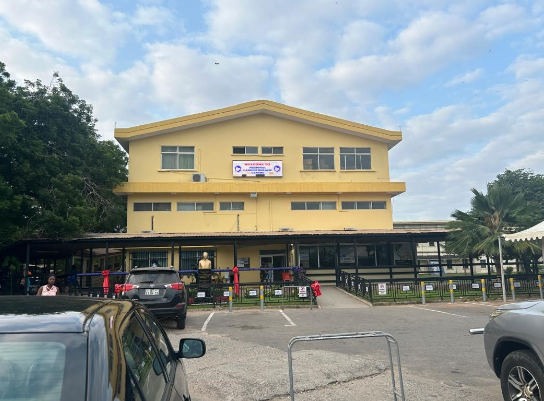
Image 1: Front view of the National Cardiothoracic Center, Accra, Ghana
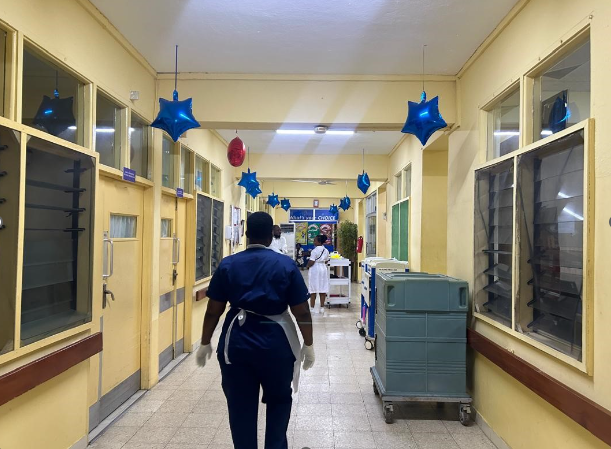
Image 2: Entrance to the ward of the NCTC
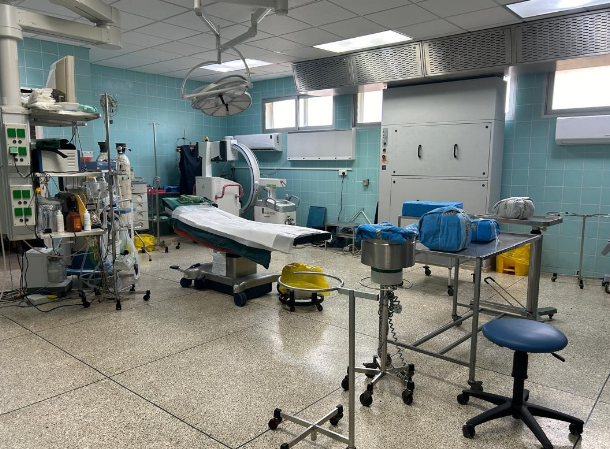
Image 3: Operating room at the NCTC, Accra, Ghana
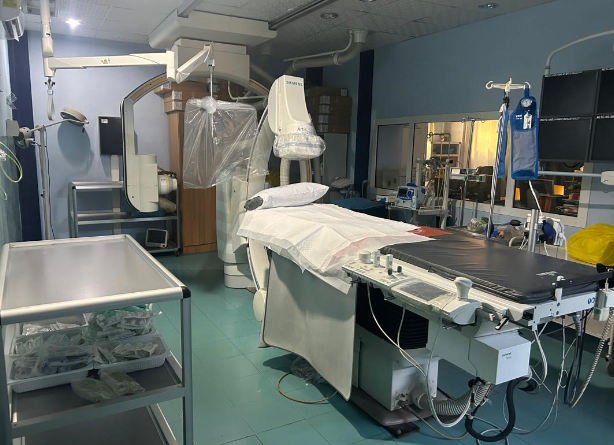
Image 4: Cardiac catheterization laboratory at the NCTC, Accra, Ghana
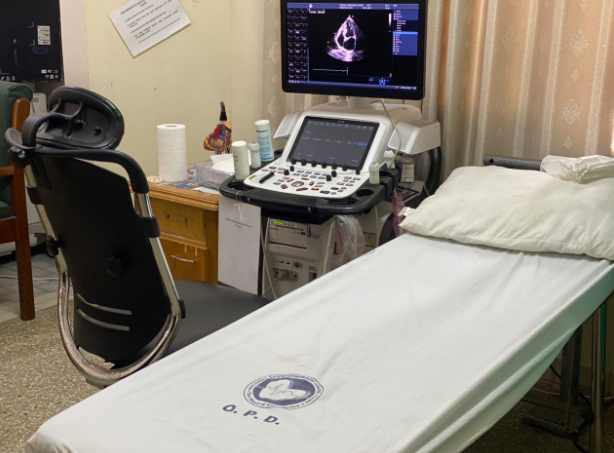
Image 5: Echocardiography room at the NCTC, Accra, Ghana
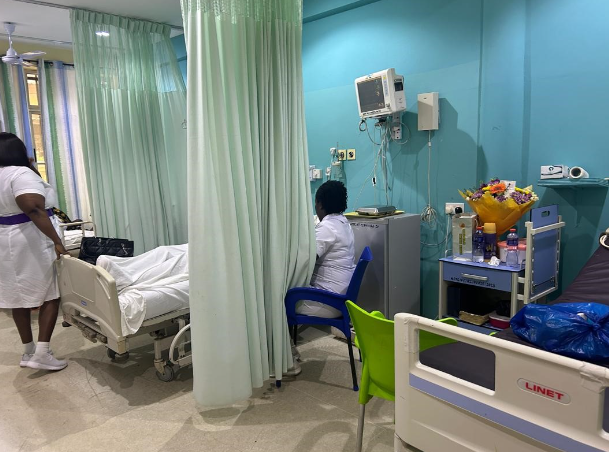
Image 6: Ward at the NCTS, Accra, Ghana
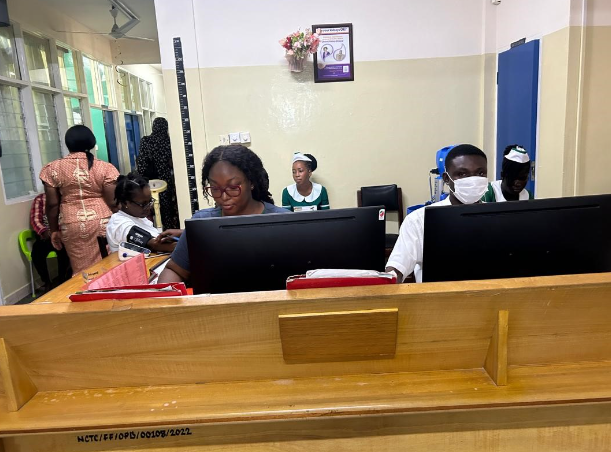
Image 7: Nurses station at the outpatient department, NCTC, Accra, Ghana
References
- Faculty of Surgery West African College of Surgery. Faculty of Surgery Training Programs and Curricula [Internet]. [cited 2024 Aug 13]. Available from: http:www.wacscoac.org/downloads/SURGERY CURRICULUM.
- Nigeria Open-Heart Surgery Registry [Internet]. [cited 2024 Aug 13]. Available from: https://www.nigeriaheartregistry.com
- Korle-Bu Teaching Hospital: A Brief History [Internet]. [cited 2024 Aug 13]. Available from: https://www.kbth.gov.gh/brief-history
- Edwin F, Tettey M, Aniteye E, Tamatey M, Sereboe L, Entsua-Mensah K, et al. The development of cardiac surgery in West Africa - The case of Ghana. Pan Afr Med J. 2011;9(October).
- Tettey M, Tamatey M, Edwin F. Cardiothoracic surgical experience in Ghana. Cardiovasc Diagn Ther. 2016;6(2):S64–73.
Disclaimer
The information and views presented on CTSNet.org represent the views of the authors and contributors of the material and not of CTSNet. Please review our full disclaimer page here.



